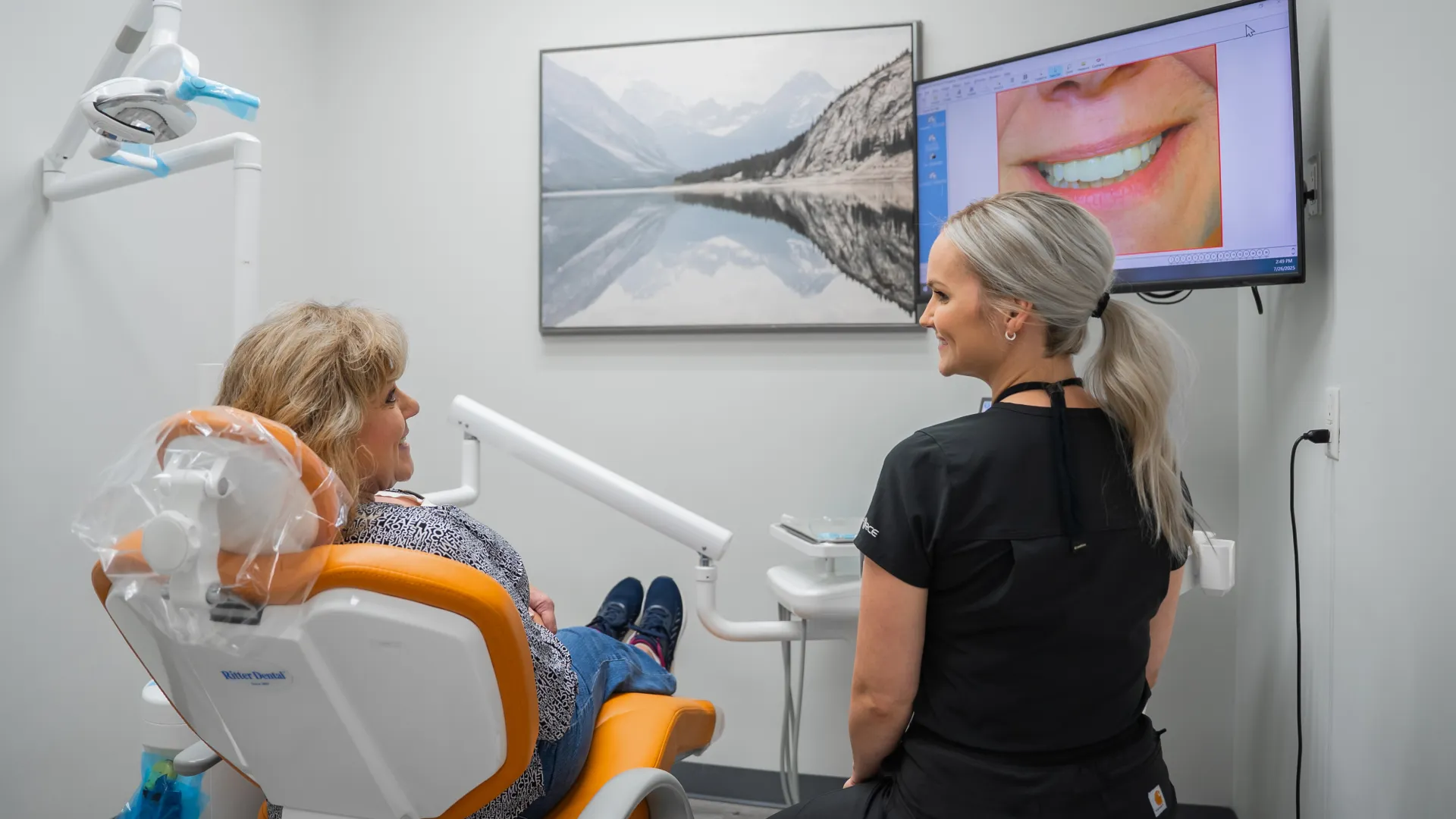
DENTAL VENEERS
Make A Lasting Impression
Look Years Younger With Dental Veneers in Trophy Club
When you choose Trophy Club dental veneers, you can expect a stunning smile transformation that feels natural and lasts for years. These thin, custom-made shells cover your teeth to fix chips, stains, or gaps, giving you a confident appearance. Our team works with you to create veneers that match your style and personality perfectly.
The benefits of teeth veneers are hard to beat. You'll enjoy a brighter smile, improved tooth shape, and a boost in self-esteem. They're stain-resistant too, so your coffee or tea habit won't ruin the look.
Want a smile you'll love showing off? Contact Trophy Smile Studio today for a consultation!

Find Your Perfect Veneer Match
We offer a wide selection of premium veneer brands, each with unique advantages for different smile needs. During your consultation, we'll discuss your options and help you select the ideal brand based on your specific concerns and desired outcome.
You'll be amazed by the variety of shades available - from bright Hollywood white to more natural, subtle tones that complement your complexion and existing teeth.
Beyond color, your dentist considers shape, thickness, and translucency to ensure your veneers look completely natural. You may want thinner, more translucent veneers that mimic the way natural enamel allows light to pass through. Or you might need a slightly thicker option to conceal severe discoloration or damage.
Each veneer is carefully crafted to match your facial features, ensuring optimal results.

Experience an Easy Journey to New Veneers
Getting veneers usually requires two to three visits to our office. During your first appointment, your dentist will prepare your teeth by gently removing a minimal amount of enamel to ensure your veneers fit perfectly. We then take precise digital impressions, creating a blueprint for your custom veneers.
While your final veneers are being crafted in our partner lab, you'll wear temporary veneers. In one to two weeks, you'll return to the office, where your dentist will carefully bond each veneer to your teeth.
After making any necessary adjustments for bite and comfort, you'll leave with the confident, radiant smile you've always wanted - ready to make a lasting impression.
To explore dental veneers in Trophy Club, contact Trophy Smile Studio today for a cosmetic dentistry consultation.



